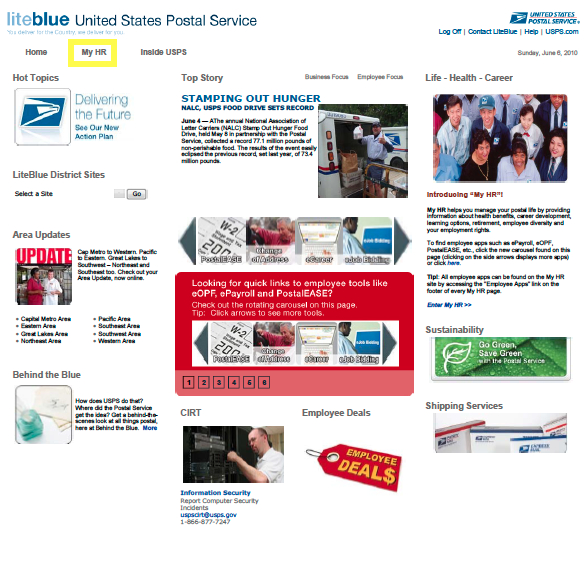Financial Guide for Survivors of Federal Employees and Retirees
 Survivors and federal employees or retirees are faced with many choices and options. This article will provide you with useful information about survivor benefits.
Survivors and federal employees or retirees are faced with many choices and options. This article will provide you with useful information about survivor benefits.
The federal government offers several programs to help meet the needs of survivors of civil servants. During his or her life, the deceased was able to elect one of two retirement plans: the Civil Service Retirement System (CSRS) or the Federal Employees Retirement System (FERS). Each system provides slightly different benefits for survivors.
The CSRS and FERS retirement plans provide multiple continuing benefits for survivors. The plan applicable to you depends on the type of plan your loved one chose and whether or not he or she elected to make payments to their insurance for survivor benefits. There are specific limitations placed on many aspects of the plan, so it’s important to be fully informed about what conditions apply and how that may impact your eligibility for certain benefits.
Civil Service Retirement System (CSRS) Survivor Benefits
The following is a brief summary of the benefits available to survivors of CSRS employees or retirees.
When a civil servant who was enrolled in the CSRS plan passes away, the eligible survivors — including former spouses and dependent children — can receive a monthly annuity payment. (Lump sum payments are not available.) For a survivor to be eligible, the deceased must have elected to provide survivor benefits and must have been married to the widow or widower for at least nine months prior to death. The nine-month requirement does not apply if the widow or widower had a child with the deceased or if their death was accidental.
Some survivors can receive both Social Security and CSRS Survivor benefits, but the CSRS benefit may be reduced if Social Security benefits are included. As a survivor, whether or not you are employed will not affect whether you receive an annuity benefit or the amount of the benefit.
Benefits for Children
Children cannot be prevented from receiving CSRS payments and will receive them even if the surviving spouse is not receiving payments. Children must be unmarried, under 18 and be considered dependent. Other provisions affecting children include the following
:
- If the child is adopted, he or she can receive the same benefit as long as they fulfill the same requirements as any other child.
- Children can continue to receive payments from age 18 to 22 if they are enrolled in full-time post-secondary education and remain unmarried.
- Children over the age of 18 who are disabled and cannot support themselves are also eligible if the disability occurred before the death of the deceased.
- A child whose benefit was revoked due to marriage cannot regain the benefit unless the marriage is annulled. Divorce or death does not entitle them to reinstatement of the benefit.
- If the annuity was terminated due to a loss of full-time student status and the child returns to school full-time before the age of 22, the benefit may be reinstated.
If you are already receiving survivor benefits, your right to continue to receive the benefits may be affected by any of the following events:
- Death of a survivor annuitant
- A reduction or termination of a former spouse’s annuity
- Marriage of dependent children
- Widows or widowers who remarry before age 55 (unless they were married to the deceased for at least 30 years)
- A change in post-secondary education enrollment status for dependent children over 18
- A change of employment or health status in a dependent child over 18 who receives a benefit due to a disability
- Change in payee or representative selected for a minor incompetent survivor
Additional Information on CSRS Survivor Benefits
Survivor annuities always end when the survivor passes away. If the benefit was granted based on a court order to a former or surviving spouse, the benefit will end when its terms have been fulfilled. Benefits to widows or widowers end if they remarry before age 55 and if they were not married to the deceased for at least 30 years. The survivor’s benefit can be reinstated if the remarriage ends in divorce. If the surviving spouse remarries after age 55, the benefits continue. Former spouses whose marriage to the survivor ended due to divorce, and whose benefit ended due to remarriage are never eligible to have the benefit restored.
Survivor annuity payments are subject to both federal and state taxes. The United States Office of Personnel Management (OPM) Retirement Operations Center withholds federal taxes, typically deducting for three individuals. Let them know if you need to adjust withholdings to avoid under- or overpaying taxes. The annuity may also be claimed as income for legal obligations such as child support or alimony. Similarly, if funds are owed to the federal government either by you or the deceased, annuity payments can be withheld.
If the survivor was enrolled in the “self and family” health benefit plan (rather than the “self-only” plan), health insurance will continue for the survivor and their family members. Enrollment will be transferred into the survivor’s name and premiums will be deducted from the annuity. If the survivor is the only person eligible for health benefits after the death of the deceased, coverage will be changed to “self-only,” which is less expensive.
Health Benefits for Former Spouses
If you are a former spouse of the deceased, coverage is for life unless you remarry or cancel your enrollment. As with the annuity payments, if the remarriage ends, you are then eligible to receive benefits again.
Coverage for Children
Children are also eligible for health coverage as long as they meet the requirements for dependent children. Similar to other programs:
- The child’s benefit lasts until age 22 unless they are married; however, the child does not have to be a full-time student to receive the health benefit.
- If a child is disabled or incapacitated due to a disability that occurred before they turned 22, they can continue to receive benefits beyond the age of 22. If eligibility is lost, the coverage will continue for 31 days so that new coverage can be obtained.
- Children can also apply for a temporary continuation of coverage for up to 36 months if they become ineligible. Premiums must still be paid and the government does not cover any of those costs.
Federal Employees Retirement System (FERS) Survivor Benefits
Survivors of employees of the Federal Employees Retirement System (FERS) receive a basic employee death benefit and/or monthly annuity payments. This annuity is subject to state and federal taxes as well as debts owed to any private individual or the government. Here are some details about the death benefit:
- The Basic Employee Death Benefit is paid to the widow or widower of a deceased family member who died while “in service” as long as they completed 18 months of “creditable civilian service.”
- The benefit is 50% of the deceased’s final salary, or average salary if that is higher, and a lump sum adjusted for inflation.
- This benefit is either paid in one lump sum or in payments over 36 months.
- Remarriage of the survivor does not affect eligibility for this benefit.
- Both the monthly survivor annuity and eligibility are similar to those in the CSRS plan as discussed above:
- The deceased must have worked for the federal government for at least 10 years in order for their spouse, former spouse or children to be eligible to receive the annuity payments.
- The benefits are revoked for the same reasons as in the CSRS plan.
- Unlike the CSRS plan, however, the FERS plan has an additional annuity available for survivors of deceased retirees. Eligibility requirements include:
- The deceased must have completed at least 5 years of service and at least one continuous full year of service.
- The survivor must be under 60 and be eligible for social security benefits as the widow/widower of the Deceased.
For further information about the CSRS or FERS survivor benefits, contact the OPM Retirement Operations Center at 1-888-767-6738.







